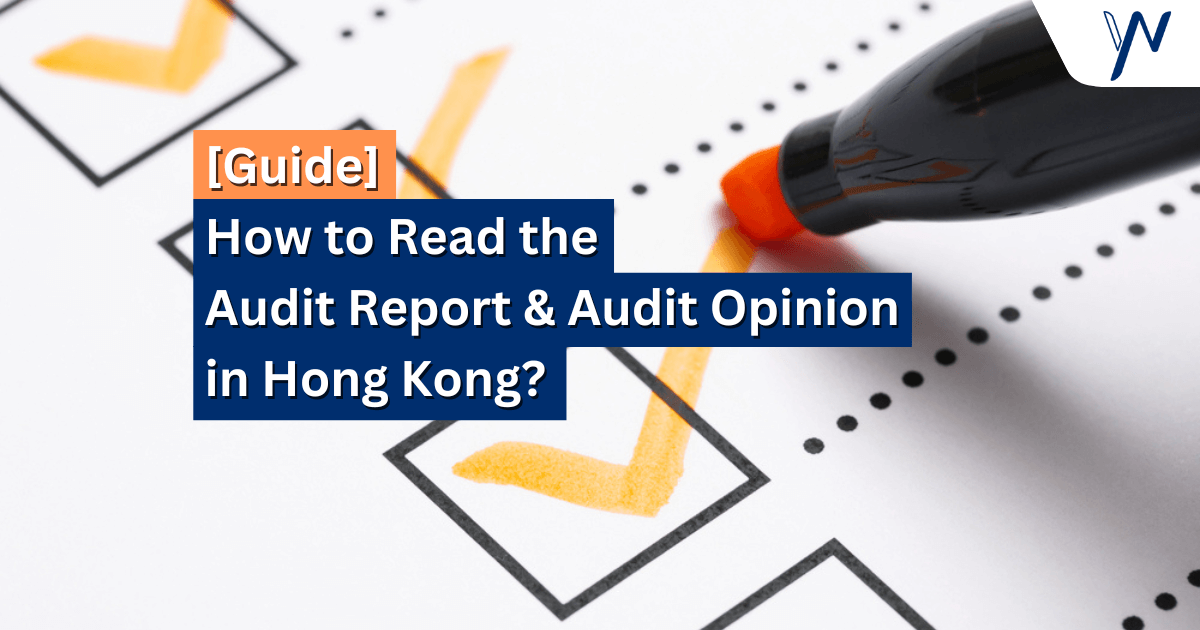您剛從香港審計師那裡取得第一份審計報告,但不熟悉會計和審計術語,意味著您不知道如何閱讀報告!不過別擔心,在本文中,我們將介紹審計報告中最重要的部分,包括要尋找的關鍵字詞及其意義。
審計報告的目標
審計師進行審計的目標是確保您的財務報表內容真實、符合香港的財務報告標準,並且計算正確。這也意味著審計報告的結果並不說明您的財務狀況是否健康。因此在香港,審計師必須是第三方,因為他們與您的業務沒有任何利益關係,所以很可能會提供公正的意見。
考慮到此目標,您應該特別注意審計報告的三個主要部分。
審計師意見
審計師意見是審計師在審查您公司的財務報表後的想法總結,以關鍵短語標記,說明您的財務報表是否有序,是否有資訊缺失,或審計師是否認為您的文件沒有公平地呈現資訊。
非修正式意見
這是您希望透過香港審計報告實現的最佳結果。非修正式意見通常會以短語的形式提出,「財務報表真實、公允地反映了公司的事務狀況」或「公司的財務報表在各方面均按照《中小企業財務報告標準》」或類似的內容。這意味著審計師認為公司的財務報表不存在任何重大錯誤,可以以其表面價值來判斷。以下是來自香港會計師公會網站的非修正式意見樣本。
獲得非修正式意見應是每次審核的關鍵目標,因為如果您收到修改的意見,可能會遇到許多困難,如:
- 如果您的帳簿及信用被證明為不值得信賴,銀行或較難批准向您提供任何貸款。
- 如果你的投資人無法相信你的財務報表,他們可能會不信任你的領導力。
- 報稅時,稅務局 (IRD) 會進一步詢問您的財務狀況。
修正式意見
修正式意見意味著審計師認為公司財務報表在某方面沒有公平地列報或缺乏資訊。審計師通常會對此進行更詳細的討論,分為幾類意見:
保留意見
保留意見通常包含“例外”等短語,後面跟著例外的原因。有保留意見通常表示審計範圍受到限制、缺乏證據支持公司的金融債權,或公司的財務報表與典型的會計慣例不同。
香港會計師公會在其網站上提供了保留意見的樣本。
否定意見
否定意見通常包含「不公平陳述」的措辭,表示公司的財務報表沒有反映審計師對公司財務狀況的調查結果。換句話說,計算不成立。
無法表示意見
無法表示意見通常包含“不發表意見”這一短語,當缺乏足夠的會計記錄進行會計審計以獲得公正評估時使用。
財務報表附註
您還需要查看審計師提供的經審計財務報表。請特別注意審計師提供的註腳,因為他們通常會在註腳中註明財務報表中某些項目的毛病。
例如,一家軟體公司將在財務報表附註中列出其所有硬體設備和付費軟體的詳細資訊。
保留意見的基礎
如審計報告中提及保留意見,應說明提出保留意見的理由。如果您收到有保留意見,保留意見的基礎就是您應該在明年的審計中尋求解決的問題。
結論
審計報告的目的是了解您的財務報表是否反映現實,而您公司的目標是對您的審計報告獲得非修正式意見。作為註冊會計師,我們希望看到所有客戶得到非修正式意見,但只有透過一致的記錄保存才能保持乾淨的記錄。想知道如何做到?讓我們幫忙吧!










